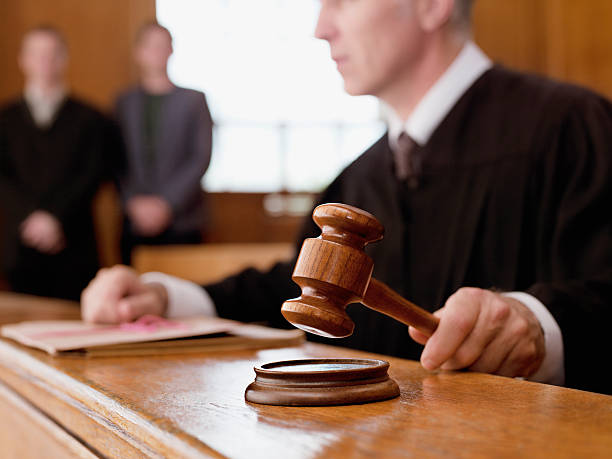
Courts are an integral part of any society, providing a platform for the resolution of disputes, interpretation of laws, and the administration of justice. In this article, we will delve into the intricate world of the court system, its functions, and its significance in our lives.
Types of Courts
The court system comprises various types of courts, each with specific jurisdictions and functions. The primary categories include:
- Supreme Courts: These are the highest judicial bodies in a country, often responsible for interpreting the constitution and handling significant cases.
- Appellate Courts: These courts review decisions made by lower courts and determine whether legal procedures were followed correctly.
- Trial Courts: Also known as district or superior courts, they handle cases at the initial level, including both civil and criminal matters.
- Specialized Courts: Some countries have specialized courts such as family courts, bankruptcy courts, and small claims courts to address specific types of cases.
The Role of Courts in Society
Courts play a pivotal role in maintaining law and order within society. They serve as a mechanism for settling disputes between individuals, organizations, and even the government. Additionally, they interpret and apply laws, setting legal precedents that guide future cases.
Key Components of a Court
For a court to function effectively, Fun lovin criminals several key components come into play.
Judges and Magistrates
Judges and magistrates are responsible for presiding over cases, ensuring that proceedings adhere to legal guidelines and making decisions based on the facts presented.
Attorneys and Lawyers
Attorneys, often referred to as lawyers, represent the interests of the parties involved in a case. They present evidence, cross-examine witnesses, and argue legal points.
Courtroom Personnel
Courtroom personnel, such as clerks, stenographers, and bailiffs, play essential roles in maintaining order during trials.
The Legal Process
The legal process involves several stages, from the initiation of a lawsuit to its resolution.
Filing a Lawsuit
Lawsuits begin when one party files a complaint, outlining their grievances and the relief they seek. The court then notifies the other party, who must respond.
The Trial
During the trial, both sides present their cases, witnesses are called, and evidence is examined. The judge or jury then makes a verdict.
Appeals
If a party is dissatisfied with the court’s decision, they can file an appeal, taking the case to a higher court for review.
Types of Cases Heard in Court
Courts handle a wide range of cases, broadly categorized into criminal, civil, and family matters.
Criminal Cases
Criminal cases involve violations of the law, and if convicted, the defendant faces penalties, such as imprisonment or fines.
Civil Cases
Civil cases pertain to disputes between individuals or entities seeking monetary compensation or equitable relief.
Family Court Matters
Family courts address issues like divorce, child custody, and domestic disputes, striving to find resolutions that benefit all parties involved.
The Importance of Fair Trials
A fundamental aspect of any court system is ensuring fair trials. The principle of justice demands that every individual be treated impartially and with due process.
Landmark Court Cases
Throughout history, there have been several landmark court cases that have shaped legal doctrine and society. These cases often address contentious issues and set precedents for future legal battles.
Controversial Court Cases
Controversial court cases captivate public attention due to their social, political, or moral implications. They become focal points of debate, often shaping public opinion.
Courtroom Etiquette and Procedures
To ensure the smooth functioning of a courtroom, specific etiquette and procedures must be followed by all participants, including attorneys, witnesses, and spectators.
Legal Terminology You Should Know
The legal system has its own language. Understanding key legal terms can help individuals navigate the complexities of the court system.
The Influence of Media on Court Proceedings
Media plays a significant role in shaping public perception of court cases. The media’s presence in courtrooms can both inform and influence public opinion.
Challenges Faced by the Court System
The court system is not without its challenges. Overcrowded dockets, budget constraints, and public mistrust can hinder its effectiveness.
The Future of the Court System
As society evolves, so does the court system. Future developments may include the use of technology for virtual court proceedings, alternative dispute resolution methods, and more.
Conclusion
In conclusion, the court system is a cornerstone of any just society. It provides a forum for dispute resolution, interpretation of laws, and upholding justice. Understanding its intricacies is essential for every citizen.
